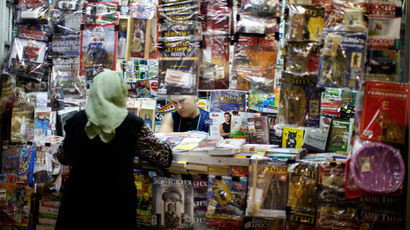Duma votes to restrict foreign ownership in online video services

The Russian lower house has given the first nod to a bill that limits foreign stakes in online video services to 20 percent and bans them from running political ads. The bill, however, only applies to video-on-demand sites and not to sharing services such as YouTube.
The proposed legislation was prepared and drafted jointly by the conservative parliamentary majority party United Russia and populist nationalists LDPR. Its sponsors propose that the new rules for online video-on-demand sites come into force starting March 1 this year.
The current draft sets the maximum limit for stakes of foreign citizens and companies in Russian companies providing video-on-demand services at 20 percent. It also reads that Russian authorities can shut down any other management scheme if it allows for direct or indirect control of the services from abroad. The bill further forbids video-on-demand websites from showing advertising ordered by political parties or any other election campaign material.
The draft concerns services that run only “professionally made content,” meaning websites like YouTube that host primarily user-generated content are not required to follow its regulations.
The government has already approved the bill but required that its authors expand their explanations of why the 20 percent limit of foreign ownership is necessary. The amendments are expected to be made within 30 days.
At the very beginning of 2016, Russia introduced a law that sets the maximum foreign stake in Russian mass media companies at 20 percent. The same law also banned foreigners (including residents without citizenship and Russians who have citizenship of other nations) from being founders of Russian mass media companies. Exceptions are allowed for media derived from state-level international treaties, like Mir television, which was founded jointly by several CIS nations.
The sponsors of the motion said the main reason behind it was the desire to provide maximum information security. They also noted that the 20 percent limit was chosen because a 25 percent share would enable a powerful veto possibility, allowing shareholders to exert serious influence on the information policy of any media outlet.













